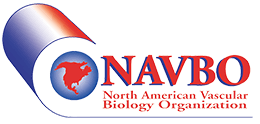Webinar Featuring Drs. Dionna Kasper and Jason Fish

Webinar Featuring Drs. Dionna Kasper and Jason Fish
Thursday, March 2, 2023 (1:00 PM - 2:00 PM) (EST)
Description
Dr. Dionna Kasper, Assistant Professor of Molecular and Systems Biology in the Geisel School of Medicine at Dartmouth College, and Dr. Jason Fish, Senior Scientist at the University Health Network in Toronto, will present their IVBM talks at this event.
Dr. Kasper will discuss "Deciphering the function of the N-glycan code during the endothelial-to-hematopoietic transition." Abstract: Hematopoietic stem/progenitor cells (HSPCs) have great therapeutic potential for correcting blood disorders as they self-renew and can differentiate into all blood cell types. Unfortunately, we are still unable to produce long-lived, multipotent HSPCs in vitro, indicating a lack in understanding about HSPC specification. HSPCs naturally arise during development from hemogenic endothelial cells that undergo an endothelial-to-hematopoietic transition (EHT). Recently, we identified N-glycosylation as a novel mechanism controlling EHT. Glycosylation refers to the modification of proteins and other macromolecules with diverse sugar structures, known as glycans. Zebrafish mutants with altered levels of specific N-glycans have excessive EHT, which leads to increased HSPCs and skewed blood differentiation toward the myeloid and lymphoid blood lineages. The functional significance of this N-glycan code on individual proteins involved in developmental hematopoiesis is unknown. We have identified a dozen of mis-glycosylated proteins in our zebrafish mutant model. Currently, we are employing unique mutagenic and transgenic approaches to determine whether these N-glycoproteins control EHT and how N-glycan modification impacts their function in this process. Taken together, this work defines new mechanisms of HSPC production, which can be used to improve blood regenerating therapies.
Dr. Fish will present "Somatic activating KRAS mutations in brain arteriovenous malformations." Short abstract: The majority of brain arteriovenous malformations are sporadic and are caused by somatic activating KRAS mutations in endothelial cells. This presentation will show how cellular and animal models are being utilized to better understand the pathobiology of sporadic brain arteriovenous malformations and to leverage this information to develop targeted treatments.
Images

NAVBO Online
Webinar Series
